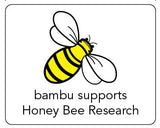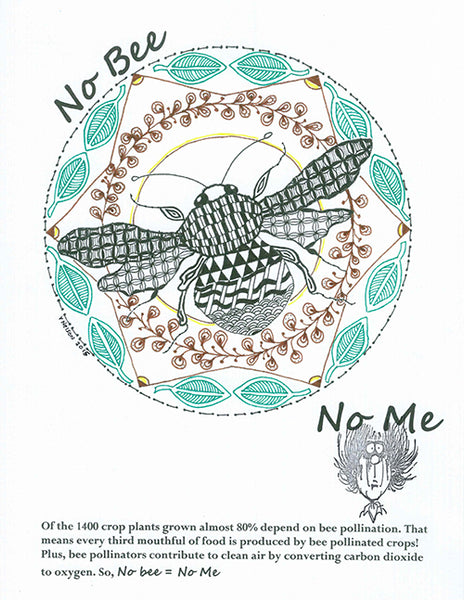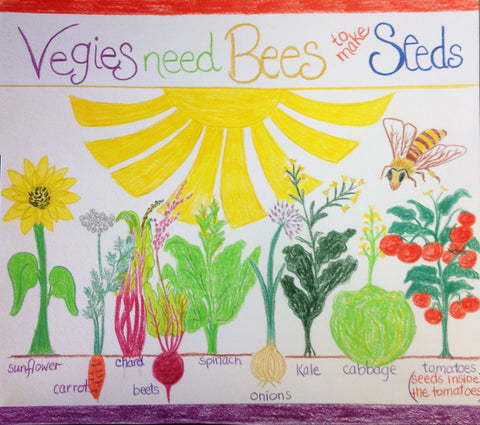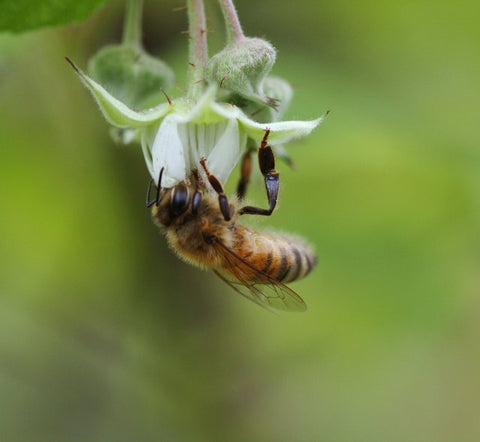According to a recent UN report, more than 70 of the 100 crops that provide 90 percent of the world's food rely on bees for pollination. Managed honey bees remain the most economically important pollinator, contributing over $19 billion annually to the U.S. economy.
Bees are responsible for one in every three bites of food: from almonds to berries and the alfalfa that feeds dairy cows, our diets and agricultural economy hinge on a healthy bee population.
On the verge of collapse, habitat loss and pesticide exposure are the two biggest contributors to the population loss.
Oregon State University Honey Bee Research Lab is making inroads to understanding and correcting the decline of the bee population.
 bambu supports the Honey Bee Lab and extension program. This year, the company offers scholarships to the Master Beekeeper Program. Students are selected in part by the submission of art depicting the importance of honey bees and pollinators.
bambu supports the Honey Bee Lab and extension program. This year, the company offers scholarships to the Master Beekeeper Program. Students are selected in part by the submission of art depicting the importance of honey bees and pollinators.
We are pleased to share a selection of the personal art created and contributed by the apprentices of the Master Beekeeper Program.

Vicky Nelson, native Oregonian and retired teacher

Geri Young, writer and illustrator of children's books
Ron Lane photographs a honey bee on a raspberry flower, a favorite resting place
Learn more about our collaboration with the Honey Bee Research Lab and our bee-themed products. [bambu and the Honey Bee Lab]
YOU CAN HELP TOO
If you want to help protect pollinators, you can do your part too. Tell our government to support program ideas to end pesticide contamination of our agricultural crops.
The Pesticide Action Network works to inform and protect our pollinators. You can too. Join bambu and Urge Congress to Protect Our Pollinators. > ACT NOW
Let's bee a part of the change.






